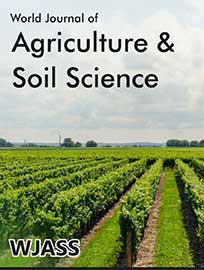 Research Article
Research Article
Food Security Via Improving Crop Water Productivity in Some Arab Countries
Nassar Atef1* and Fawzy Gamal2
1Deputy of Water Management Research Institute, Egypt
2Water Management Research Institute, Egypt
Nassar Atef, Deputy of Water Management Research Institute, Egypt.
Received Date: April 26, 2019; Published Date: May 08, 2019
Abstract
Food security is one of the essential elements of national security, and self-sufficiency in basic food commodities, Arab countries import about half of their food requirements and are considered the significant importers of grain in the world. On this basis, Arab countries, particularly those with vast agricultural capabilities, have worked on achieving the goal of self-sufficiency, reducing the food gap, and have implemented many national plans and programs to increase production and productivity within the agricultural sector.
Water availability in the Arab region is a critical issue as the region has 5 percent of the world’s population having access to merely 1 percent of the world’s total water resources. According to United Nations estimates, around 12 Arab countries suffer from severe water shortages. The per capita availability of renewable water resources is less than 500 M3 per year.
In General, the majority of Arab countries has a shortage of rainfall, agriculture and its development are almost entirely dependent on irrigation; therefore, the Socio-Economic growth is closely linked to a well-planned improvement of irrigation.
The food consumption pattern is expected to change dramatically during the next 20 years in response to increases in population, per capita income and changes in consumer preferences. This study provides evidence on the importance of studying food security alongside water poverty. Having water scarcity contributing to nearly half the variation in food security will have an important policy, research, and investment implications. The agricultural sector faces the challenge to produce more food with less water by increasing crop water productivity. Higher water productivity results in either the same production from fewer water resources, or a higher production from the same water resources, so this is of direct benefit for other water users.
This paper contributes to the debate and aims at explaining the efficient use of water for food production and identifying opportunities and challenges to produce more food with less water by increasing crop water productivity. The study presented several options to achieve the strategy of food security via improving water productivity. Some measures were provided to adopt these options to the local circumstances and guarantee the Arab states’ right to achieving food security for their people.
Keywords: Food security; Food gap; Water productivity; Food consumption; Water scarce
-
Nassar Atef, Fawzy Gamal. Food Security Via Improving Crop Water Productivity in Some Arab Countries. World J Agri & Soil Sci. 2(2): 2019. WJASS.MS.ID.000532.
-

This work is licensed under a Creative Commons Attribution-NonCommercial 4.0 International License.






